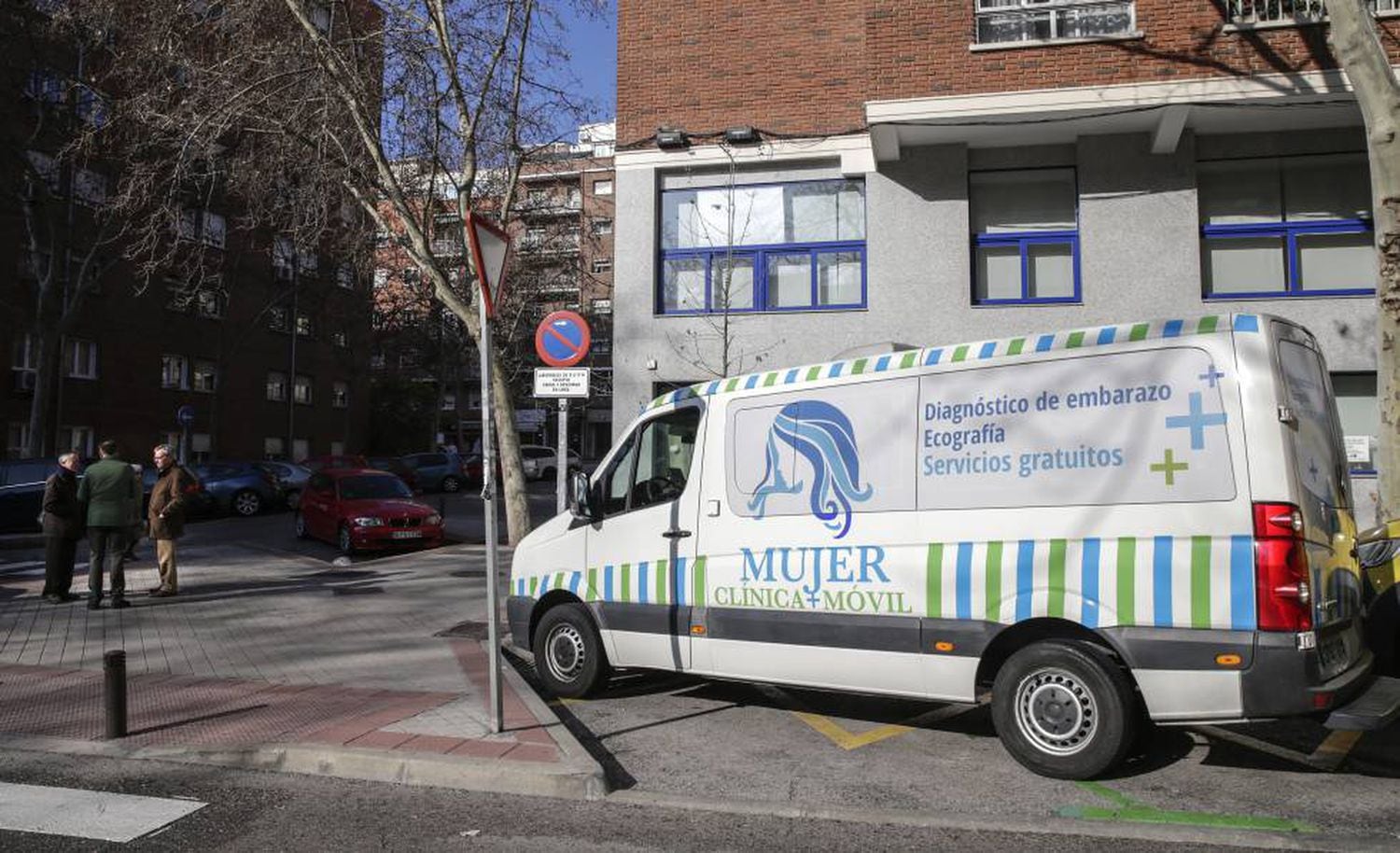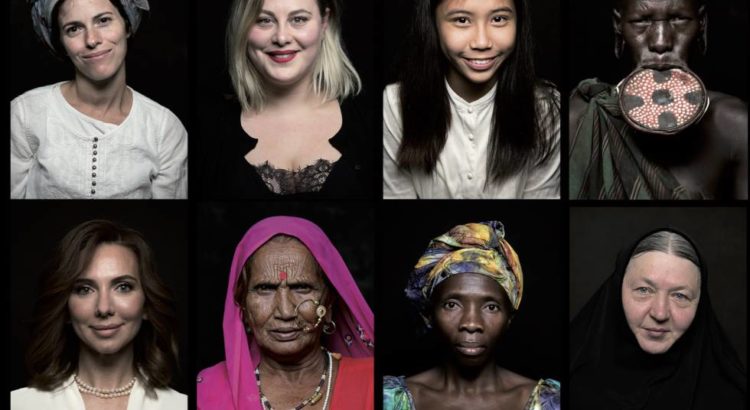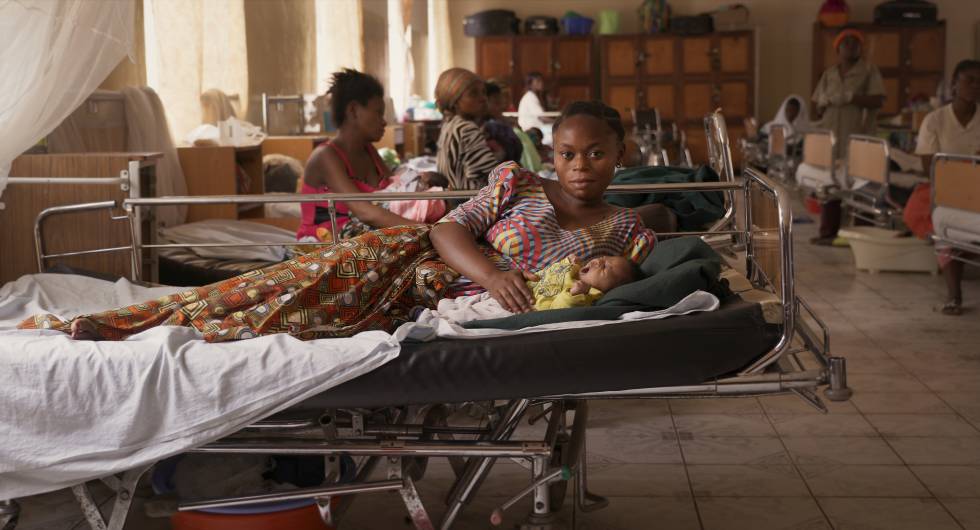Europe / Spain / 26/02/2020 / Author: LUCÍA FRANCO / Source: english.elpais.com
Report shows that 89% of women trying to terminate their pregnancies are pressured by pro-life groups
Anyone who takes the Madrid metro to Tetuán station and walks up Hermano Gárate street will find a message painted on the sidewalk: “They kill children in here.” The last few meters between this point and the Dator clinic – one of seven abortion centers in the Madrid region – are not easy to cover for women trying to walk into the clinic. Other messages are scrawled on nearby walls. And then there are the pro-life advocates themselves who are waiting for them at the entrance.
“Are you going in to kill your child?” asks Mercedes, rosary in hand, as a woman walks towards the clinic. She grabs her arm and gives her a brochure, but before she lets go, she whispers one last message in her ear: “Murderer!” Mercedes is a volunteer for one of the organizations that post activists outside the clinic in a bid to deter women from terminating their pregnancies.
Sonia Lamas, a worker at Dator and spokesperson for the Association of Accredited Abortion Clinics (ACAI), says she is frustrated by the situation. “We have been reporting the harassment for months, but the authorities don’t even come to clean up the graffiti,” she says.
She considers the coercion to be a direct attack on women and their reproductive rights, which are recognized by the public healthcare system. “The women who come here have been referred by the public health service,” she says. “The Madrid government should look after its patients.”
Besides the street harassment, the pressure groups work on various other levels: legal, administrative and public. In ACAI’s last report, issued in 2018, the association interviewed 300 women who had experienced pressure from pro-life groups. Hazte Oír, Derecho a Vivir, Más Futuro and Asociación Sifra were names that came up again and again. These organizations pour much of their time and money into trying to prevent voluntary pregnancy terminations. In the report, 89% of women said they had been subject to some form of harassment by these groups, while 67% said they had felt threatened during the medical procedure. However, 100% went through with the termination.
Activists with these pro-life organizations gather outside abortion clinics in the mornings and wait for women to arrive. “Our goal is to help people who are dealing with an unexpected pregnancy and women who have already had an abortion and are now living with the consequences,” says a spokesperson for Sifra. This group, which also delivers talks about the ethics of assisted reproduction techniques, offers women two alternatives: motherhood or adoption.
Each woman who comes to the Dator clinic copes with the harassment in her own way. But according to the professionals, some patients are so upset by the encounter that by the time they get through the door their condition makes any medical procedure inadvisable, which entails postponing the termination and prolonging the agony of what is always a difficult and complex decision.

Two years ago, a woman who is using the name Maria for the purposes of this article made the decision to terminate her pregnancy. On the day of the procedure, a group of men approached her at the entrance to the clinic. “I was very nervous when I arrived because having an abortion isn’t easy,” she says. “But the worst thing was definitely the harassment. Several men lectured me, showed me pictures and told me that women die inside. I hope these people realize the damage they do to us by being there,” she says.
Around 8,000 women have been subject to harassment in Spain since the 2010 abortion law was passed, according to the Pro-Rights platform, an umbrella group for 62 organizations across Spain.
Handing out leaflets is the most common strategy for exercising pressure, complete with pictures of fetuses and phrases such as “You are all alone, and your abortion will be for life,” and “Abortion can cause suicide and cancer.”
The pro-life activists always follow the same strategy. Once they have the woman’s attention, they ask how far into her pregnancy she is with the aim of convincing her to accompany them to one of their offices. Once there, she is shown ultrasounds to persuade her to have the baby, regardless of whether there are fetal deformities, risks to her health or the circumstances of conception.
Pro-choice groups have been calling for this type of harassment to be incorporated into Spain’s criminal code
A few months ago a doctor named Gádor Joya, who also sits in the Madrid regional assembly representing the far-right party Vox, made headlines after parking a van outside abortion clinics and offering free ultrasounds because, as the party claims, “women don’t know what they are carrying inside them.”
There are other less aggressive but more effective strategies. The most common is to invite the pregnant woman to breakfast, as the medical procedure cannot be performed if the patient has drunk or eaten anything. Consequently, they have to face the ordeal of returning another day.
According to ACAI, in Madrid this type of harassment happens mainly outside the Dator clinic, which was the first private center to be allowed to carry out abortions in Spain. Pro-life groups gather here almost daily, while at the Isadora clinic and the El Bosque medical center, it is a weekly occurrence, usually on Saturdays.
The harassment is not confined to the patients, either. Lamas, 47, has been working at Dator for five years and says that once an activist followed her and bombarded her with questions, such as “How much do you make?” and “Are you here for the money?” He also claimed that “I can help you find another job.”
For years, ACAI has been calling for this type of harassment to be incorporated into Spain’s criminal code, like France did in 2017. They have also asked that a minimum distance be established to keep anti-abortionists away from the entrance to abortion clinics, similar to the distance that smokers must observe from schools and hospitals. But their demands remain unanswered.
In the Madrid region, 18,914 women had abortions in 2018, according to the Health Ministry’s latest available data. This is a 9.7% drop from 2010, when new legislation went into effect legalizing abortion upon request in the first trimester. And for many, the anguish of making such a momentous decision is exacerbated by those who want to make the decision for them.
English version by Heather Galloway.
Source and image: https://english.elpais.com/society/2020-02-26/activists-outside-madrid-abortion-clinic-are-you-here-to-kill-your-child.html











 Users Today : 89
Users Today : 89 Total Users : 35460106
Total Users : 35460106 Views Today : 110
Views Today : 110 Total views : 3418741
Total views : 3418741